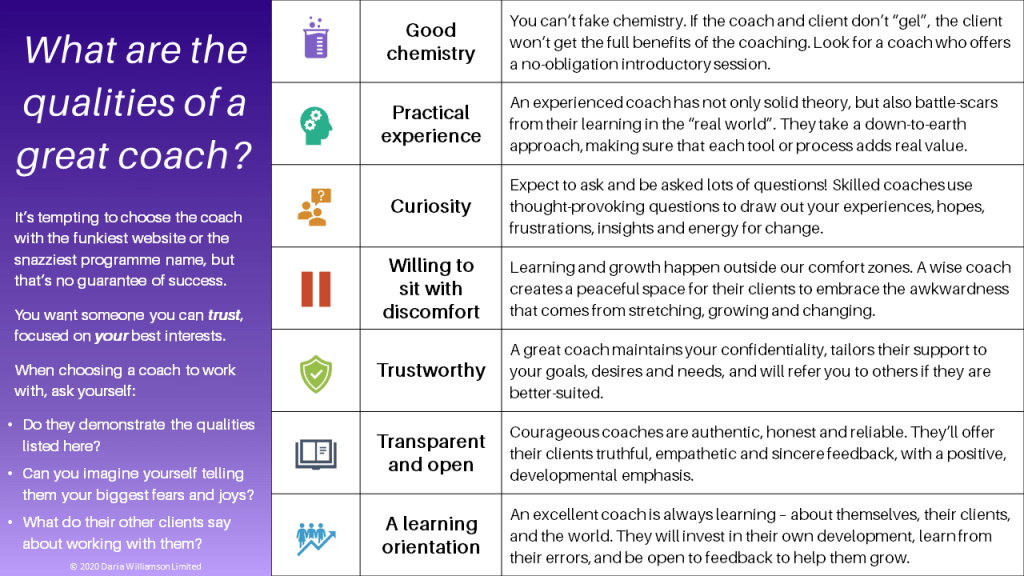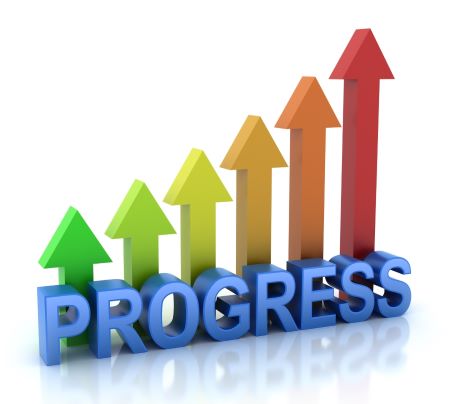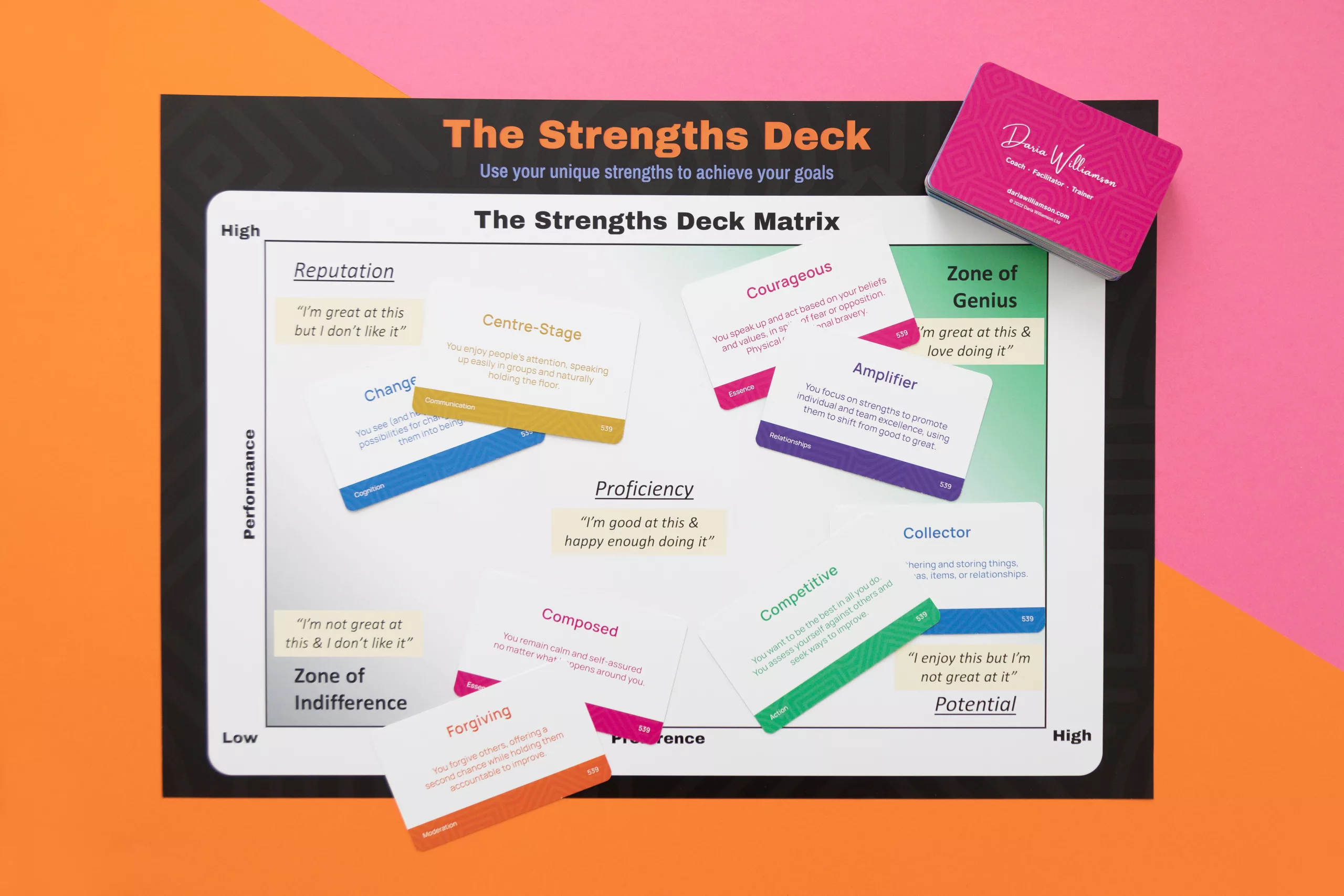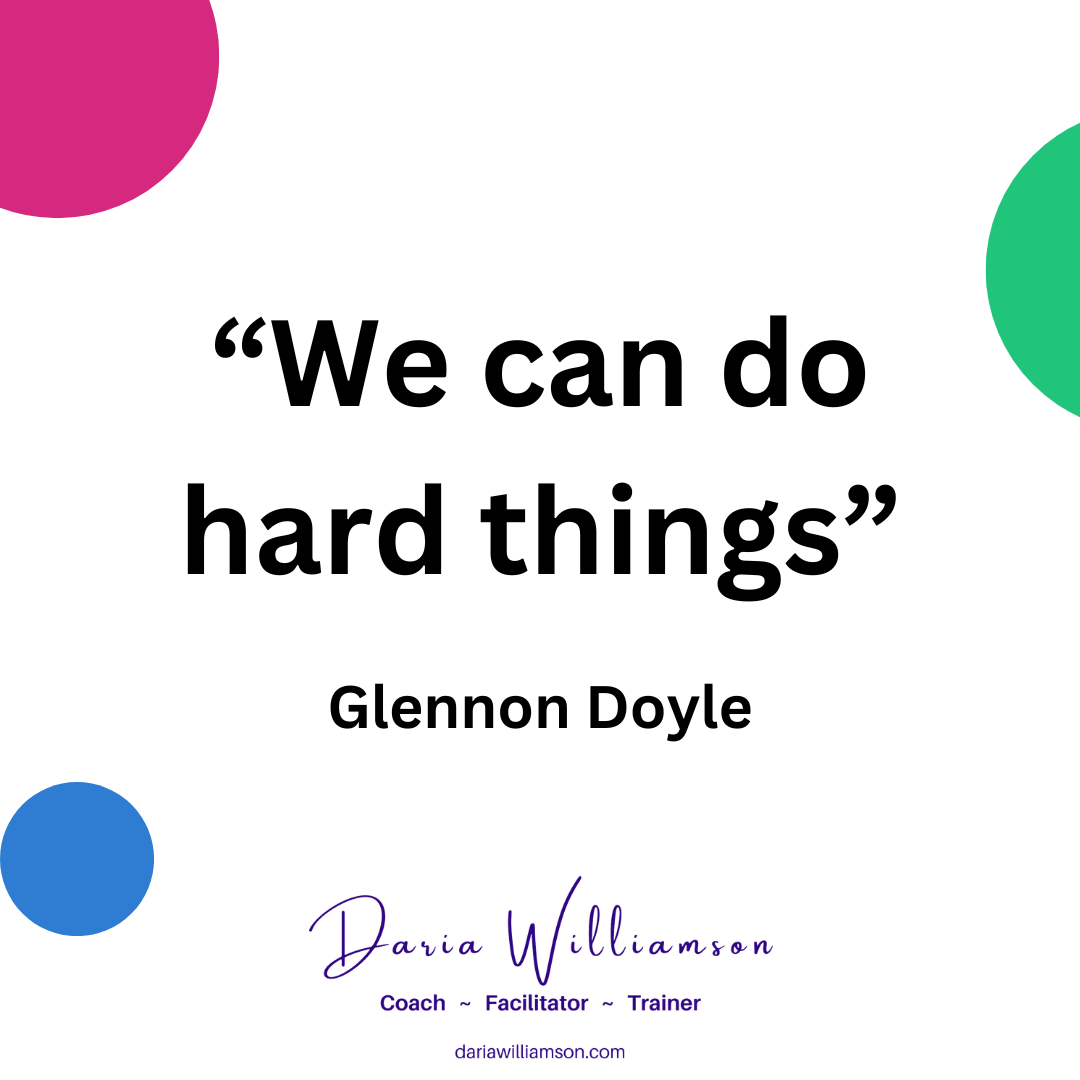Most of the strategies we’ve covered in the series are based around doing our thinking in groups. In this post, we’ll look at a strategy for when it’s not feasible or appropriate to work with a group, or when you want to upskill your thinking abilities. We’re looking at why, when and how to get a coach.
A great coach will help you see things from fresh perspectives, access your internal wisdom and insight, and develop skills to improve your thinking and ability to generate great ideas. They can also help you apply the strategies we’ve already covered:
Why would I need to get a coach?
Throughout this series, I’ve continually made the point that thinking is a group sport. Connecting with other people’s experience, knowledge, insights, skills, perspectives and strengths will improve our own thinking. But that doesn’t mean that it’s always the most effective way to think.
If you need to think alone
There are times when it’s not appropriate or feasible to do your thinking with a group. There could be many reasons for this. For example, you might be considering a personal or professional change that could negatively affect the group you’d usually think with. Fear and anxiety are the enemies of creative, flexible thinking, so you want to stay calm and centred while you’re thinking. Perhaps you are developing a business opportunity and don’t want to “tip your hand” before you’re ready. Or you might just need time to build your confidence in your thinking.
We don’t have to be alone when we’re thinking alone. A great coach can offer you the benefits of thinking in a group while maintaining your confidentiality.
If you need to develop your thinking skills
What do tooth-filling, riding a bicyle and calculating the trajectory for a spaceship to land on Mars have in common? They are all learnable skills. Yes, some are more complex than others. But we don’t expect anyone to be “naturally” skilled at those tasks, even if we can put putty in a hole, sit on a seat, or do some mathematical equations.
Were you ever taught how to think? Most of us weren’t. So, unless we put in time and effort to develop our “thinking muscles”, we are at best semi-skilled thinkers. When you get a coach who has the capabilities to help you develop your thinking skills, you’re on the pathway to thinking mastery. And that will put you right at the front of the pack!
What makes a great coach?
Coaching is one of my core skills and joys, and an area that I’m really passionate about. In fact, I’m so passionate about it that I’ve dedicated an entire page to the topic!
When you decide to get a coach, don’t just go with the first one you find. You want, and deserve a great coach.
I believe there are seven elements that can help you determine whether someone will be a great coach for you. Check out the infographic below for an explanation of these qualities.

So you've decided to get a coach. Now what?
Deciding to get a coach is a sign of your commitment to your personal and professional development – well done!
Before you get a coach on-board, you need to do some thinking. This will help you get the most out of the coaching. I recommend:
- getting clear on what you want to achieve through working with a coach (goals and outcomes)
- deciding which qualities of a great coach are most important to you
- doing your due diligence by talking to as many coaches as you need to find one that “clicks” for you.
Get clear on what you want to achieve
Deciding to get a coach isn’t a magic bullet that will improve everything in your life. Different coaches have different skills and areas of expertise, so it’s important to know what you want to get out of working with a coach.
Here are some questions to ask yourself (and that a great coach should ask you before agreeing to work with you):
- What are your goals?
- What results do you want/expect?
- How will you measure “success” from working with a coach?
- What will be different after working with a coach?
- What are you prepared to change?
- And what aren’t you prepared to change?
Decide which qualities of a great coach are most important
Of course, we’d love to work with a coach that exhibits all of the qualities of a great coach, in equal measure. Unfortunately, we haven’t yet invented the perfect human! So, you’ll need to decide which qualities are most important to you.
How can you do this? While I don’t recommend “forced ranking” for most things to do with humans, in this case, I am going to!
Download the infographic and cut it up into the individual elements, or write them on separate pieces of paper. Then, sort them into order from most important to least important. Yes, I know, they’re all important, otherwise I wouldn’t have included them on the infographic! But you need to decide which 2-3 elements are absolute deal-breakers for you, and which ones you can be a little more flexible with.
You might get it right first time. Or you might need to revisit the order a couple of times. Just keep at it until your gut tells you that you’ve got it in the right order.
Have you finished sorting? Congratulations! You’ve just created a checklist for helping you select a great coach.
Talk to different coaches
Now that you know what you want from a coach, and what’s most important to you in a coach, you’re ready to start looking for coaches to work with. The hive-minds of Facebook and LinkedIn can be very helpful for this step! Ask friends and your professional network for recommendations.
Select a few coaches that seem to fit what you’re looking for. Then, do some research – read their website and social media pages. Check if their online behaviour and messaging is consistent with who they claim to be. Look at their testimonials and customer feedback. Do they have suitable education, training and experience? Does their approach feel like it gels with what you’re looking for?
By now, you should have a shortlist of coaches. Get in touch with them. Most coaches will provide a free, no-obligation discovery call so you can chat with them. This gives you and the coach a chance to see if you’d be a good fit to work together.
You might be lucky enough to click with the first one you speak to, or you might need to make a few calls before you get the right fit. Persist until you find someone who feels trustworthy, capable and interested in your success. And please don’t engage a coach until you are confident that they work with integrity, ethics and in a client-centred manner (that is, they’re in it for your success, not to meet their own needs or blow their own trumpet).
My coaching services
I’m an experienced and result-driven coach, and would love to chat with you about working together.
My approach is strengths-based, and built on a positive psychology foundation. That means that I help you discover your strengths, what you’re great at, and the resources you have available. From there, I support you to create and implement a do-able action plan that gets you the results you want.
I offer a free, no-obligation 30-minute discovery call where we’ll talk about where you’re at, what you want to achieve, and how I can help you to seize your opportunities and unleash your potential. Just click on the button to make your booking in less than a minute.
What to expect once you get a coach
A coach won’t do the work for you, but they’ll use their skills, experience, tools and insight to help you do excellent work.
You can expect them to:
- set ground rules to ensure that your time together is effective
- make observations and ask challenging questions
- hold you accountable for your actions, behaviours and words
- help you face up to beliefs and behaviour patterns that aren’t serving you
- refer you to another provider if they can’t meet your needs
- engage in on-going training, upskilling and professional development
Progress Check - is this the end?
This is the second-to-last strategy in this series. The nine strategies we’ve covered so far are:
- Have lots of ideas
- Read, watch and listen broadly
- Carve out blank spaces
- Involve others
- Know nothing, be curious
- Use a theme or vision
- Don’t prejudge your ideas
- Use a facilitator
- Get a coach (this article)
There is one last strategy in this series, and I’ve saved the best for last! If you’d like to read up on that strategy, jump over to the series page, or scroll down to the bottom of the page to browse my recent articles.

If you want to be notified when I publish new articles and content, sign up for my weekly newsletter below.
Resources
- ICF Core Competencies – International Coaching Federation
- What makes a great coach? – betterup.com
- 15 qualities of a good coach in the workplace – csp.com







1 thought on “Great ideas: Strategy 9 – get a coach”
Pingback: How to have great ideas: Strategy 10 – use your strengths
Comments are closed.